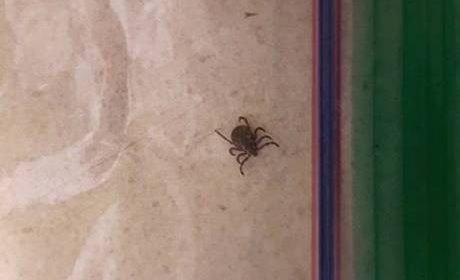Health unit official says ticks are ‘like Velcro,’ after London parents discover tick in daughter’s ear

The discovery of a tick inside a four-year-old girl’s ear in London over the weekend puts some literal meaning to the phrase “put a bug in your ear.”
Angela Gilbert says she and her daughter went on a hike with a group of other kids and adults at Meadowlily Trail in the area of Hamilton Road and Highbury Avenue. When they got back to her husband’s shop, they found the unwanted visitor.
“Basically, he just found the smallest pair of pliers he could and he took the tick off and put it in a plastic bag, washed the area with warm water and put some hand sanitizer on it because that’s what we had available at that time,” she explained.
They visited a doctor’s office a few days later, and the bug was sent away for testing, where it was found to be a common dog tick and not a carrier of Lyme disease.
“There was no red area, no bullseye or anything, just a little red dot where it was holding on. He didn’t have a chance to bury his head or feed or do what ticks do,” said Gilbert.
Jeremy Hogeveen, vector-borne disease co-ordinator for the Middlesex-London Health Unit (MLHU), says ticks hang out on trail edges, in the bush or in long grasses and wait for people to walk by so they can attach themselves.
“Basically, like Velcro,” he explained.
“They do make their way somewhere usually hidden in your body so they’re smart in terms of getting into your armpits, your scalp or behind your ears. And when they bite, they release a bit of anesthetic so you don’t even feel them biting you.”
If you spot a tick, Hogeveen says you should use a pair of tweezers and grab it as close to its head and your skin as you can, apply some pressure and pull straight up. The MLHU doesn’t test ticks found on animals, but ticks found on people should be taken to its office at 50 King St.
The bug will be identified within two to three business days. If it’s a deer tick — which could potentially carry Lyme disease — it’ll get sent to a lab in Winnipeg for further testing.
With files from 980 CFPL’s Jacquelyn LeBel, and Mike Stubbs.
Sign up for our Health IQ newsletter
© 2019 Global News, a division of Corus Entertainment Inc.
Source: Read Full Article